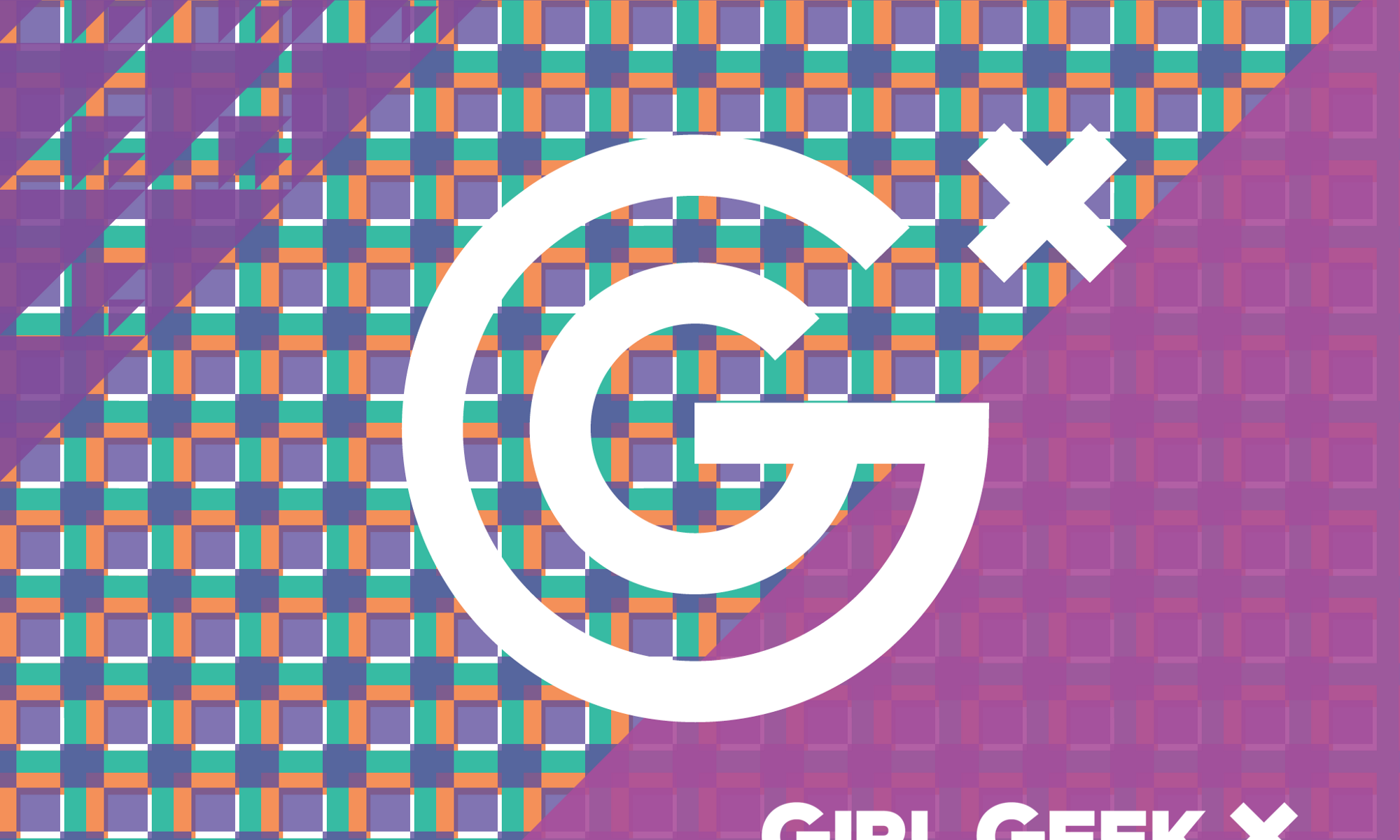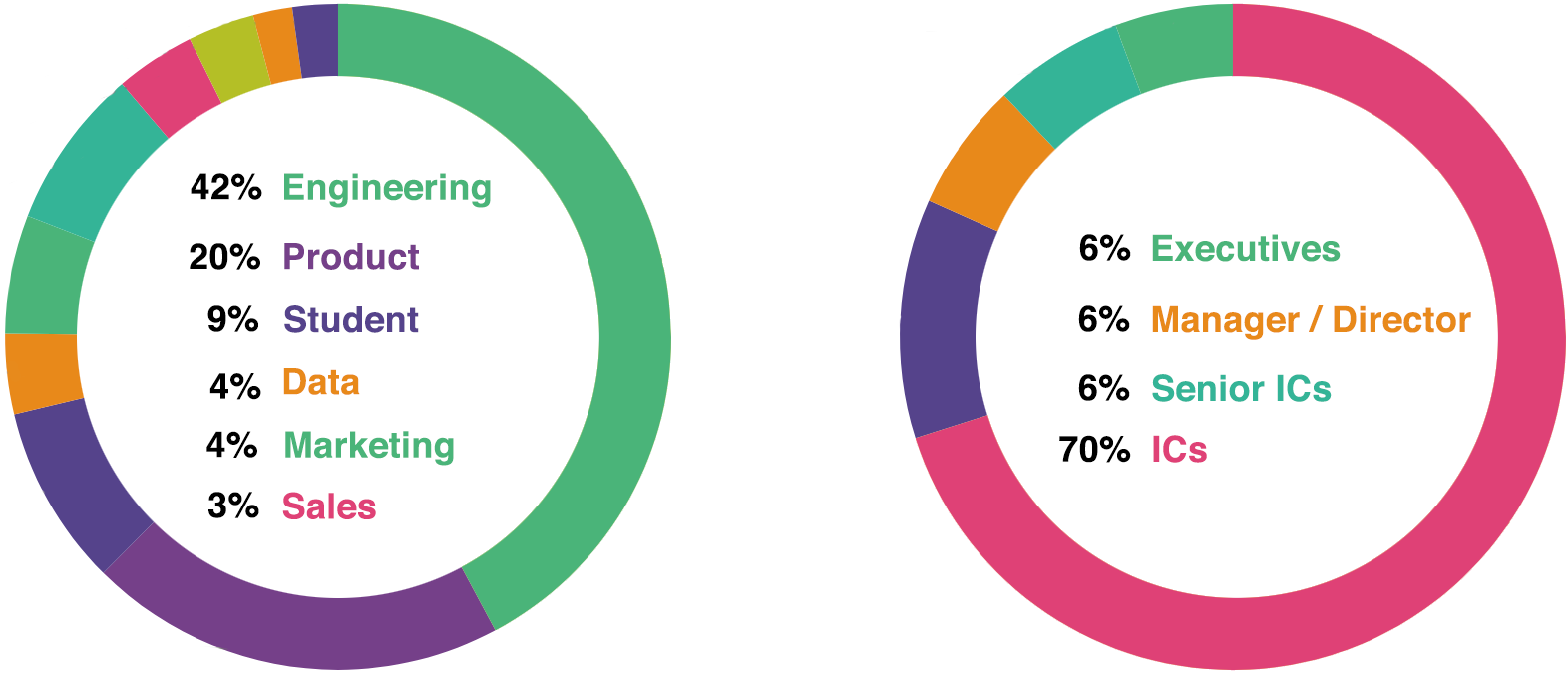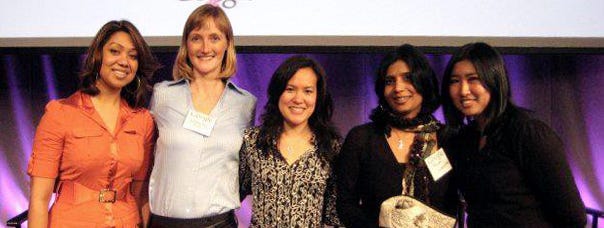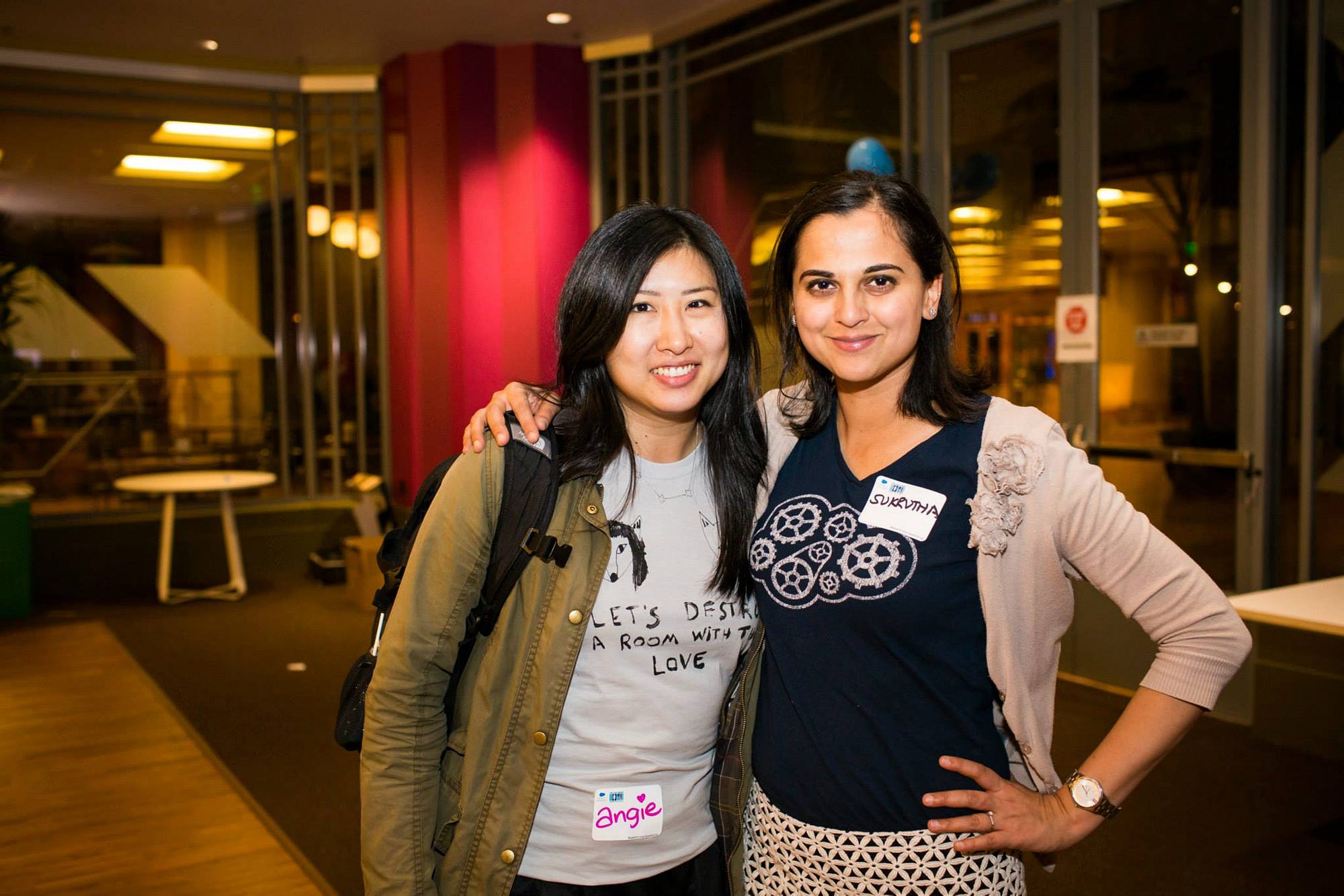Nobody starts a job with the goal of burning out from it. With the start of a new year is time for self-care and drawing boundaries. Here are the best practices from 8 Silicon Valley women in tech – productivity hacks for success!
Girl Geek X talked to eight Silicon Valley women in tech who have been working for a decade or two, and a therapist for the tech set, to discuss productivity hacks and wellness trends – the future of work.
1. Boundaries
Entrepreneur Rachel Thomas has a valuable piece of self-care advice: “Quit if you are in a toxic work environment.” She recounts “expending a ton of energy trying to take care of myself (at various points focusing on yoga, better sleep hygiene, weight-lifting, therapy, acupuncture, or mindfulness – which are all good things), when the fundamental problem was my work environment and I needed to quit my toxic job to actually be able to take care of myself”.

Rachel Thomas earned her PhD in math so you don’t have to! The author of the viral blog post “If you think women in tech is just a pipeline problem, you haven’t been paying attention”is now teaching deep learning in an accessible way — welcoming bootcamp graduates to learn.
Rachel has watched many friends have similar experiences “pouring energy into trying to change themselves when in a dysfunctional workplace – and it’s like trying to bail out a sinking ship with a thimble.”
She argues for treating the root problem of a toxic work environment by getting a new job. Vote with your feet!

Kamilah Taylor contributed to LinkedIn Engineering team as a Senior iOS Engineer for over 5 years before starting her own startup. She worked on the LinkedIn learning app, contributing technical solutions and making the app more accessible.
Engineer-turned-entrepreneur Kamilah Taylortalks about load balancing her life. She recommends “being drastically honest about what you can take on.”
She acknowledges that balancing a busy load of 3–4 projects requires figuring out what can be negotiated: “Something will suffer if not health and well-being, then a project. Think about how you are balancing projects over time, whether this month or another month, and how things like classes, projects, contracts can often be moved around, whereas things like conferences cannot.”
Negotiate your time and energy wisely quarter over quarter and you can do it all over time – just not at the same time!

Nicole Chung, PsyD is a practicing psychotherapist works with many clients struggling with feelings of guilt and self-criticism in the San Francisco Bay Area.
Depending on the person and their work situation, she encourages her clients to take time off for a break and declare a “mental health day” and see what that feels and looks like.
Taking a few days off over a year and making time to explore is not just for rest and rehabilitation. Executives and entrepreneurs also create time in their calendar for planning for a long and fulfilling career.
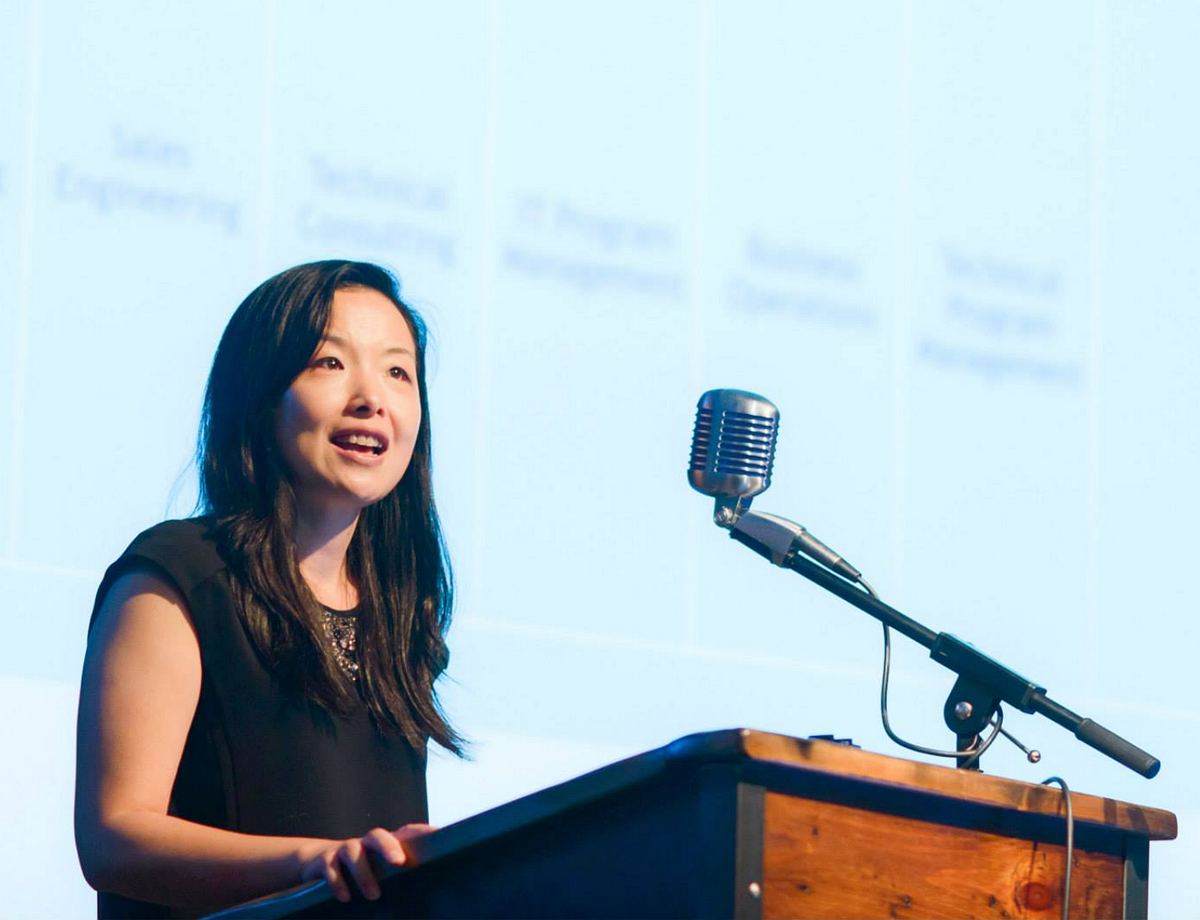
Tech executive Sophia Xiao spoke at a Girl Geek X event hosted at GitHub.
She explains her master plan: “I learned to be the master of my own time and calendar, and prioritize ‘thinking time’ over the years. I protect ‘thinking time’ in the mornings each day, and start ‘thinking time’ with yoga and meditation. Then, I take the time to think about my day, prioritize my to-do list before I start my ‘working’ day. Equally important is ending my days with a 3-minute calming breathing exercise.”
In addition, Sophia’s plan is to take a day every quarter to reconnect with friends, seeking their advice on challenges she’s facing, and finding opportunities to continue learning from them.
2. Optimize Your Sleep Algorithm / Habits!
Many people answer work-related emails before bed, draining them of positive energy for restful sleep. Nicole the therapist recommends setting a boundary for not checking email after a certain hour (e.g. 10pm).Some folks have even banned devices like phones in the bedroom to ease the winding down process in the evening, and use smart alarm clocks to ensure a productive waking experience in the morning.
“Because sleep impacts mood, you can feel like you are depressed and anxious when you don’t have sleep, and can begin neglecting normal tasks like laundry, showering, and getting out of bed in the morning…” – Nicole Chung, PsyD.
One way to ensure sleepfulness occurs is to make time for regular exercise! Whether your style is Soulcycleor Barry’s Bootcamp, rigorous exercise with a group can pay off. Or if you need solo exercise on the go, try Gixo.
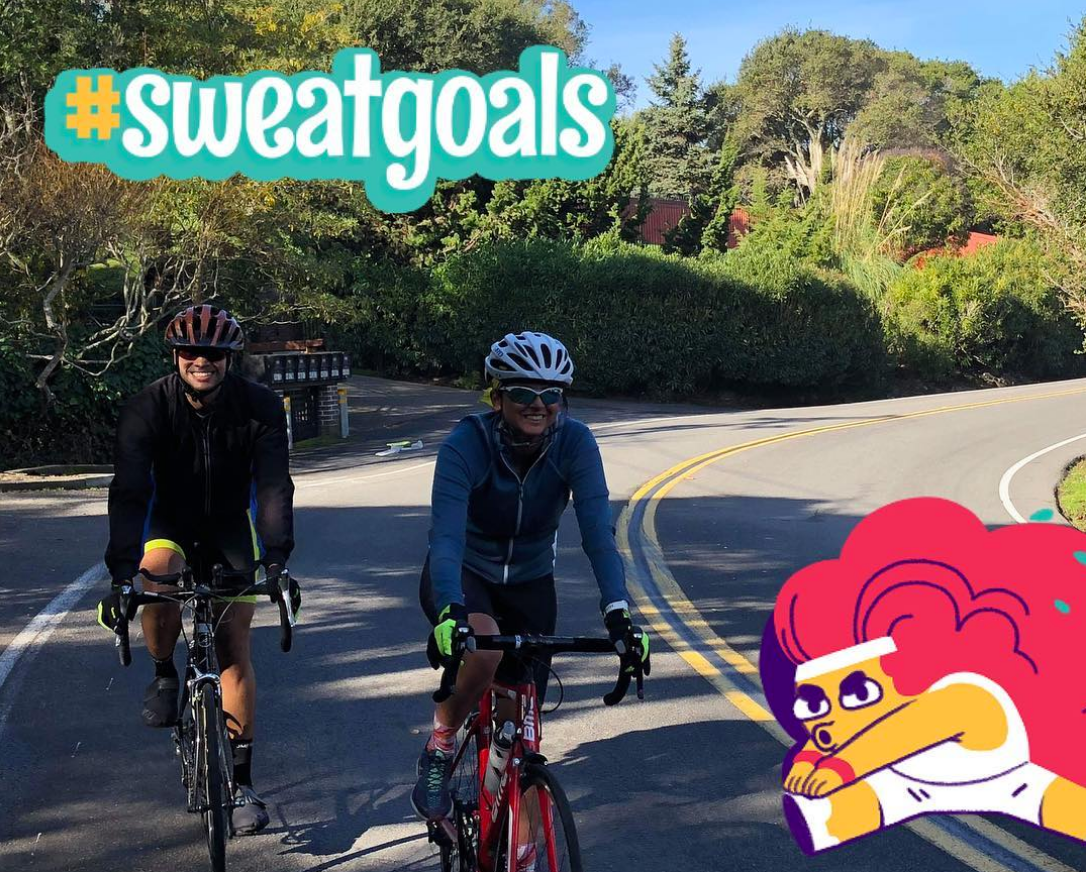
Salesforce senior engineering manager Sukrutha Bhadouria learned to train toward and complete a race.
“I found out there’s an option in triathlons that lets me do just the swim and run!” she exclaimed excitedly.
Then she joined some local organizations that help you get started with training toward a goal, like SF Tri Club.

Serial startup COO Gretchen DeKnikker has found taking classes for hip hop a great reprieve from the everyday tech bubble. In her Mission in the Mix hip hop workshop, Gretchen enjoys not having to make decisions and or being asked for her opinion. “[Instructor] Micaya is my hero. In class, I’m only responsible for myself. These were hours I cherished,” said Gretchen about the weekly practice of hip hop.
She reminisces: “Hip hop has been my happy place since I was 12 years old. Hip hop welcomes people young and old (ages 11–72), different socioeconomic backgrounds, etc. Given how I grew up, that feels a lot more like home than the office.”
3. Practice Recognizing When You Are Slipping – And Acknowledge Micro-Progressions!
The ability for a person to realize that these small areas of neglect are warning signals means that a person can take the opportunity to change something in their life. For example, a person can begin exercising more for endorphins — or make a new rule that when your laundry basket is full, you will do it instead of letting piles form.

Break out of a loop by starting a new pattern in your lifestyle. A time management coach encourages workers to consider “at least one weeknight, you won’t take any work home” in a series of mindset changes to reduce stress and try drawing small work/life boundaries.
Self-criticism and imposter syndrome are especially common in people seeking therapy as a tool to change their lives. Many people do not practice self compassion in self-talk.
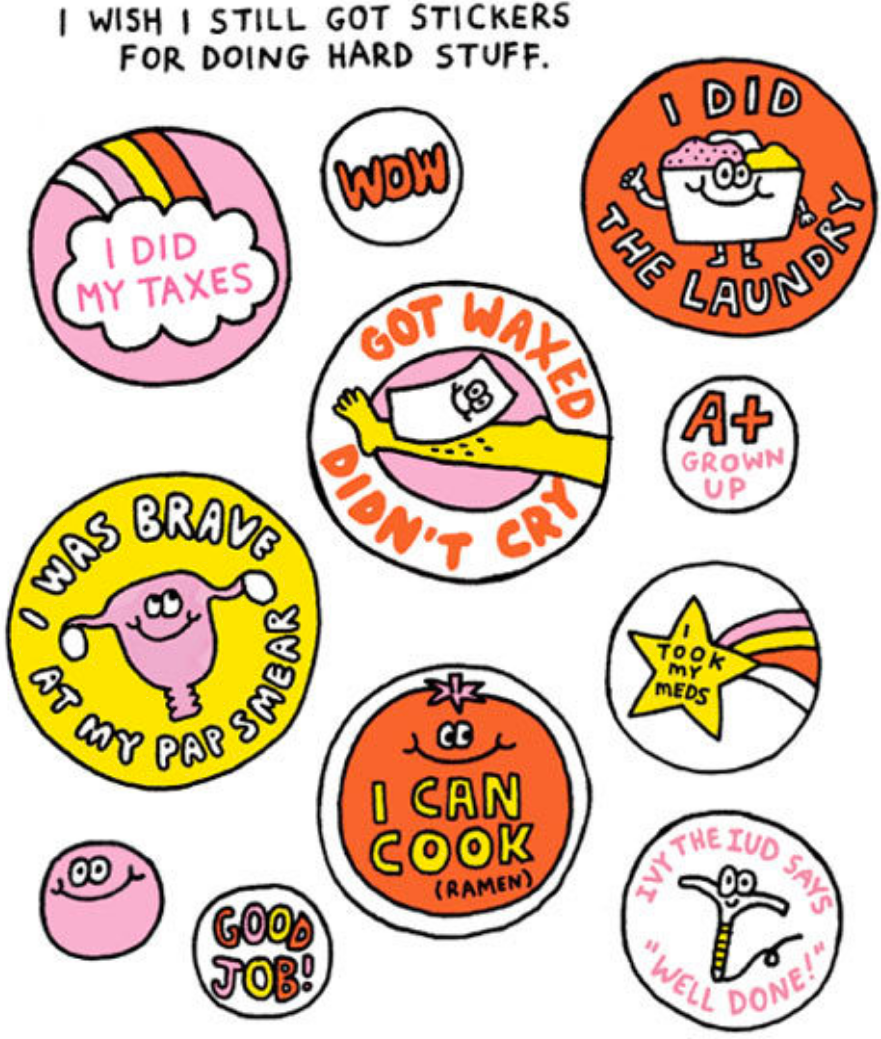
One way to remedy this is to recognize small victories in the day — whether it’s that you got up in the morning even though you didn’t want to, or that you brushed your teeth, or celebrate the small deal or win that you had at work.
“I like to focus on micro-progressions. People beat themselves up as they come in and want to make change, and they want to change faster than they are. The 25-year habit they want to change needs more time, self-compassion and self-realization of micro-progression. Let’s say, you are a big spender – celebrate that moment of hesitation when shopping online, and reflect back that, hey, you did think about making a different decision and didn’t, but that didn’t used to happen before, acknowledge that growing self-awareness,” said Nicole Chung, PsyD.
4. Mindfulness and Meditation — Yes, Startuppers and Entrepreneurs Do It Too!
Product manager Christina Pan shares that her workplace has been “doing a 5-minute meditation each day at 3pm, or if we have meetings, we move the meditation time slot a bit. We have a Slack channel with a bot reminder 5-minutes beforehand – Slack is where we chat to coordinate meeting for meditation.Some of coworkers already had meditated before so that helped. The Simple Habit meditation app has really wonderful 5-minute meditations with all types of meditation teachers (offering 1-minute, 3-minute, 10-minute, 20-minute meditations). It’s hard to start with unguided meditations as a newbie so this is much more accessible – it’s also fun with other people! In addition, Calm and Headspace have 3-minute and 5-minute meditations. It sounds small but it makes a difference! Small things daily add up,” she said.
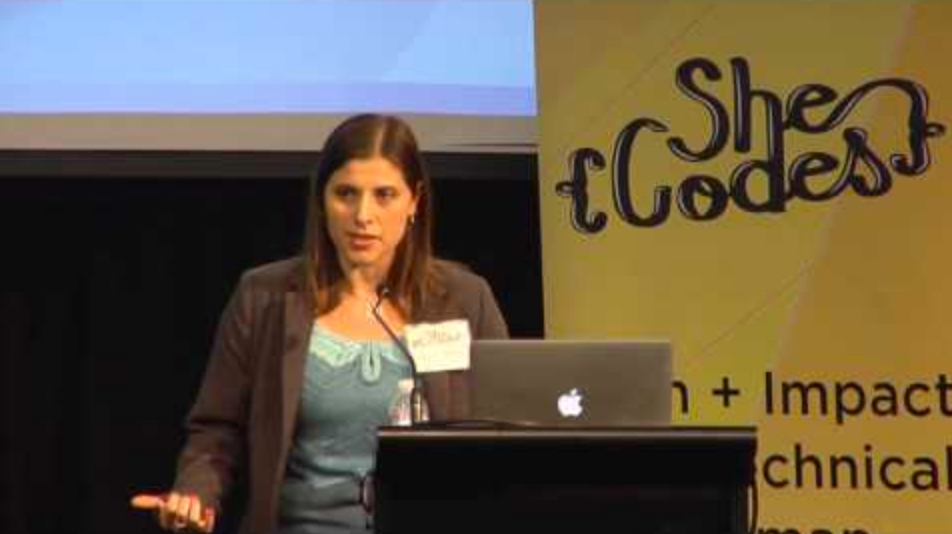
Product manager and diversity advocate Jennifer Arguello enjoys a simple mid-day walk around the block. “If it’s not raining, get some fresh air in the middle of the day if anything else,” she advises. This simple midday hack has helped her sustain her impactful work at GitHub and Kapor Center. In fact, science has shown that getting out in nature doubles your attention span. So take a breather and stretch your legs by walking around the block already!
Share with us your tips for maintaining balance in your life by tweeting at @GirlGeekX your experiences and stories! We hope to continue to amplify the stories of women in tech doing great things.
Additional Resources:
- Harvard Business Review: Burnout At Work Isn’t Just About Exhaustion. It’s Also About Loneliness
- Harvard Business Review: Employee Burnout Is A Problem With The Company, Not The Person
- Harvard Business Review: Mindfulness & Leadership





